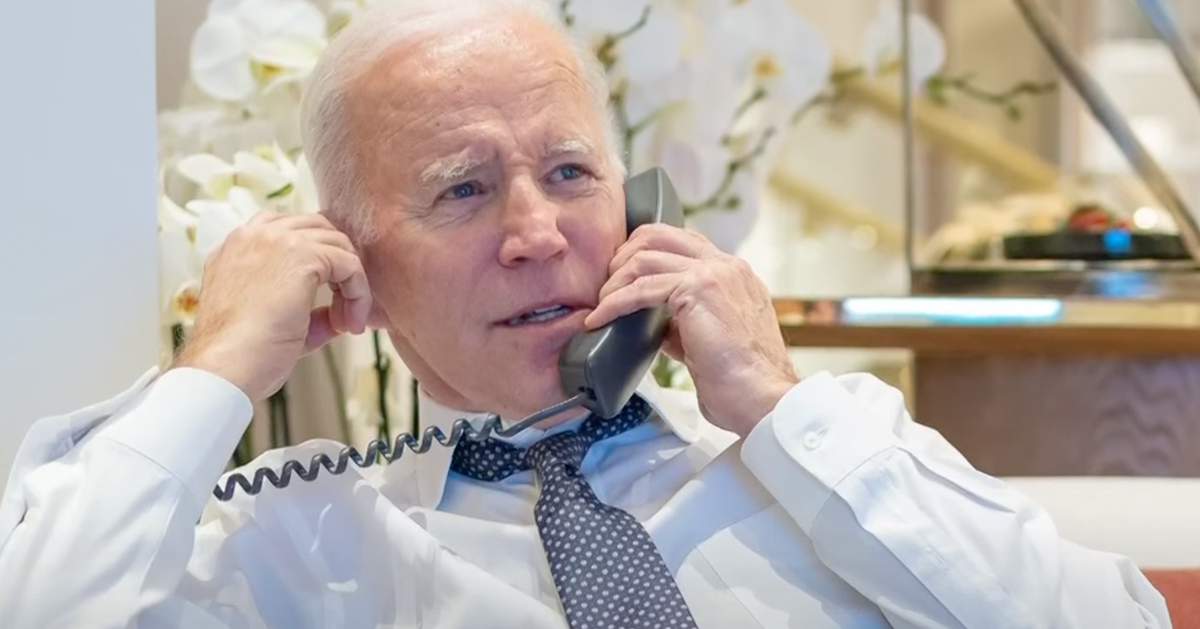Microsoft Joins Efforts To Combat AI Deepfakes In 2024 Election
Microsoft is positioning itself as a key player in fighting AI-generated disinformation ahead of the 2024 election. The tech giant collaborates with True Media to develop solutions for detecting deepfakes, a growing concern in digital misinformation. Backed by prominent figures like LinkedIn founder Reid Hoffman and former Daily Show host Trevor Noah, Microsoft positions its AI technology as crucial to ensuring the integrity of the upcoming election.
As the 2024 election approaches, concerns are rising about whether Microsoft's role in policing deepfakes aligns with its history of political censorship, Breitbart reported.
Microsoft calls for stronger regulation in AI deepfakes, focusing on its partnership with True Media. The company aims to establish itself as a major authority in identifying and countering deepfake technology.
True Media’s efforts are strengthened by contributions from influential voices in academia and media, including members of the University of Washington's Center for an Informed Public, such as Kate Starbird and Jevin West. Renee DiResta from Stanford University's Internet Observatory, another key figure, also contributes to these efforts.
Connections To 2020 Election Censorship Raise Concerns
Some individuals previously involved with the Election Integrity Partnership (EIP) have ties to True Media's "Scientific Advisory Board." Critics accused the EIP of censoring Republican voices during the 2020 election. This connection has raised concerns about potential bias in Microsoft's current initiatives, with some viewing it as a continuation of political censorship disguised as disinformation control.
Russell Dye, spokesperson for House Judiciary Committee Chairman Jim Jordan, expressed concern over these developments. "The Committee and Select Subcommittee have examined the risk artificial intelligence (AI) poses to free speech," he said, noting that the Biden-Harris administration might pressure companies like Microsoft to censor lawful speech during the upcoming election.
High-Profile Figures Endorse AI Disinformation Push
True Media CEO Oren Etzioni emphasized the complexities of AI-driven disinformation in a Microsoft podcast hosted by Trevor Noah, underscoring the need for external oversight. "Americans cannot figure this stuff out on their own," he remarked, urging reliance on trusted authorities to navigate the rise of deepfakes.
Hoffman, a major supporter of True Media, shared a video on X (formerly known as Twitter) expressing his excitement about new technologies designed to detect political deepfakes. “Excited to see new technologies being created to help detect political deepfakes and ensure that our elections are free and fair,” Hoffman noted. This reflects Microsoft's broader campaign to establish itself as a leader in election integrity through AI.
Criticism Of Microsoft's Partnerships With Biased Groups
Microsoft promotes its efforts at a time when concerns over misinformation are growing, but critics question the company’s impartiality. True Media claims that viral disinformation threatens democracy, particularly as more AI tools become accessible to the public. However, Microsoft’s association with groups that previously censored political adversaries casts a shadow over its current actions.
In 2020, Microsoft’s partner NewsGuard falsely labeled the Hunter Biden laptop story as Russian disinformation. This incident has led to skepticism over whether Microsoft’s current AI efforts will avoid similar errors or political biases.
Additionally, Reid Hoffman’s past actions, such as funding fake Twitter accounts with Russian-sounding names to discredit a Republican candidate in 2017, have raised concerns about the neutrality of Microsoft's allies in the fight against AI-generated disinformation.
Broader Concerns Over Censorship And Speech Monitoring
As Microsoft continues developing AI-powered tools to detect disinformation, critics highlight its past involvement in partisan censorship.
America First Legal's lawsuit against the University of Washington’s disinformation lab, tied to the Election Integrity Partnership, underscores these concerns. The lawsuit alleges that the lab, connected to members of True Media’s advisory board, censored political opponents of the Biden administration during the 2020 election.
These concerns intensify with comments from Dmitri Mehlhor, an advisor to Hoffman, who suggested that former President Donald Trump’s shooting earlier this year might have been staged for political purposes. This statement adds to the controversy surrounding Microsoft's involvement in politically charged events.
Microsoft's Role In Shaping AI Disinformation Policy
As the 2024 election nears, Microsoft pushes for regulatory frameworks to combat AI deepfakes. While its efforts aim to curb the spread of misleading information, the company’s track record raises questions about whether these actions could result in censorship of lawful speech.
Trevor Noah, who promotes Microsoft’s policies on his podcast, was recently exposed for not disclosing his financial ties to the company. This exposure adds another layer of scrutiny to the tech giant's role in shaping AI-related policies.
As the debate over AI deepfakes intensifies, Microsoft’s leadership in this space will likely remain under a microscope. The question remains whether the company’s efforts will strike the right balance between fighting disinformation and protecting free speech, or whether it will continue down the path of politically motivated censorship.





